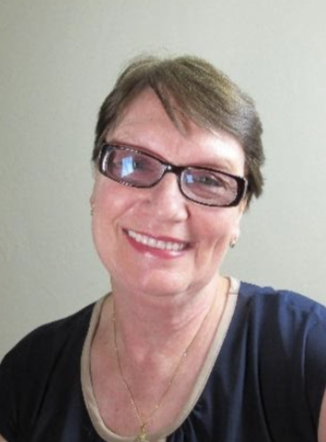Setting Meaningful and Achievable New Year's Goals for Autism Parents and Caregivers
As a grandparent and full-time caregiver of a teenager on the autism spectrum, setting personal goals for the New Year isn’t something at the top of my to-do list anymore. In years past, I used to make resolutions that focused on self-improvement, such as losing weight or getting back in shape, finishing projects, etc. While it is, of course, something I want to be mindful of, especially after the holidays, my main priority today is to make sure I am the best grandparent and caregiver I can be and to do all I can to help my autistic grandson grow and progress in the areas that need it.
I have come to realize that when I try to focus too much on the things that others feel my grandson should achieve to better succeed in school or social settings, it can lead to nagging and a lot of negative energy as I try to correct undesirable behaviors or instill the social norms that are expected of him. Of course, I do want to teach and help him in these areas, as after all, he is part of the world we live in, and he needs appropriate behavior and social skills to succeed in life. But what I want most of all for him is that he will be happy and feel accepted as the unique individual that he is—different, but not less!
So, I decided that there are some things I can resolve to do this coming year to help him work towards making positive progress and feel encouraged about himself, instead of “not good enough”, which is something he has voiced a few times lately when things he hoped would happen didn’t materialize.
 Download FREE Autism Education Picture Cards
Download FREE Autism Education Picture Cards
Here's what I plan to do:

1. I will make more effort to connect with him.
Sometimes it is hard to connect with an autistic child because we don’t have many shared interests. My grandson’s current main interest is arcade games from the ’80s, such as Pac-Man, Galaga, and Dig Dug. He has a collection of mini arcades, some countercades, and even a quarter arcade replica, for which he saved his own pocket money so he could purchase it himself. He is very good at playing these games and reaches extremely high scores. I, on the other hand, am terrible at playing those games.
One thing that makes him very, very happy is when I take time to try and play with him for a while. He is so gracious about my low scores and always encourages me to keep trying, as I do him when he struggles in other areas. This year, I will do my best to make more of an effort to connect with him and to use those times to encourage him to keep trying too when he is struggling to succeed in social situations. It’s time to tap into my grandson’s world with enthusiasm and to be inspired by his passion for his special interest.
 2. I will maintain a "can do" attitude no matter what.
2. I will maintain a "can do" attitude no matter what.
On a tough day, I sometimes feel discouraged about the things that I’ve been unable to help my grandson achieve. When his teacher explains once again that my grandson’s talking about his "enthusiasms" has aggravated his classmates, I sometimes feel ashamed and discouraged that he didn’t keep to the school rules we review each morning over breakfast. I know it’s nothing to feel ashamed of when things don’t go as planned or hoped, and that I should be able to bounce back.
Even though this is often easier said than done, I am going to keep a more positive “try again tomorrow” attitude this year. I am going to take a step back and believe that even when my grandson doesn’t achieve a goal today, in six months, what is difficult for him now may have become the norm, and I will wonder what all the fuss was about.
 3. I won't justify his behavior to strangers.
3. I won't justify his behavior to strangers.
Lately, I have caught myself a few times feeling a little embarrassed when my grandson behaved “differently” in public than neurotypical children would in the same situation. When people looked at him with that judging look on their faces, I somehow felt the need to explain or apologize to complete strangers.
This year I resolve not to feel the need to explain or justify my grandson’s different interests and behaviors to those who choose to judge. There will always be some who will criticize or don’t understand, no matter how hard I try. The important thing is that my grandson is loved and valued by the people who matter most to him—his family. Those who don’t understand what a wonderful person he is, don’t deserve an explanation, and I should never feel embarrassed because they can’t see this.
 4. I will advocate relentlessly for what I know he needs.
4. I will advocate relentlessly for what I know he needs.
Unfortunately, it is not always easy to obtain the services parents intuitively know that their autistic children need. Finances are often the reason requests are denied, or data is taken that seem to support the decision for denial of services or placement. Of course, taking data is important, but that is not the only factor that should be considered. The desire of the autistic individual to try something new, or the intuition of parents that their child is ready and in need of a change should also be taken into account and respected. I have faced many challenges like this over the years, and things did not always work out the way I hoped.
This year, I will continue to advocate and fight for the placement and services I know my grandson needs and deserves. I will not give up!
Autism is a lifelong diagnosis, and while many children on the autism spectrum develop strong skills in many areas, there will at least be some symptoms related to the diagnosis in later life. My grandson will always be autistic, which means he may not attain all the milestones typical children will reach at a certain age. It may take a little longer for him to develop meaningful and solid friendships and relationships, or for him to live independently. His interests may be different than yours and mine, but they may become the foundation for an amazing hobby or career.
In the end, what matters most, is that my grandson’s, and all autistic children’s, happiness, strengths, interests, abilities, and preferences are considered. So, my focus and goal for this coming year are to stay positive and to do all I can to project that positivity onto him, so that he will feel content and that no matter what, he is “good enough” for whatever he chooses to do and become in this world.
We hope you enjoyed the information in this article. STAGES® Learning also offers free downloadable resources to support teaching and learning with individuals with autism. Start with our free Picture Noun Cards and see our collection of other downloadable resources here!

Ymkje Wideman-van der Laan
Ymkje Wideman-van der Laan is an author, public speaker, and Certified Autism Resource Specialist from the Netherlands. After working abroad as a teacher and humanitarian for 25 years, she moved to the US in 2006 and assumed the care of her then 6-month-old grandson, Logan. There were signs of autism at an early age, and the diagnosis became official in 2009. She has been his advocate and passionate about promoting autism awareness and acceptance ever since. Logan is the inspiration behind the Autism Is...? (tinyurl.com/5aj73ydd) series of children’s books she initially wrote for him and later published. Ymkje currently lives in California with her now 15-year-old grandson, and besides writing, presents autism training workshops for early childhood educators, parents, and caregivers. You can read more about her story in her newly released book, Autism on a Shoestring Budget, [Early] Intervention Made Easier (https://tinyurl.com/ysxhxbmf). For more information, you can visit www.autism-is.com, www.facebook.com/AutismIs, and/or contact her at autismisbooks@gmail.com.




